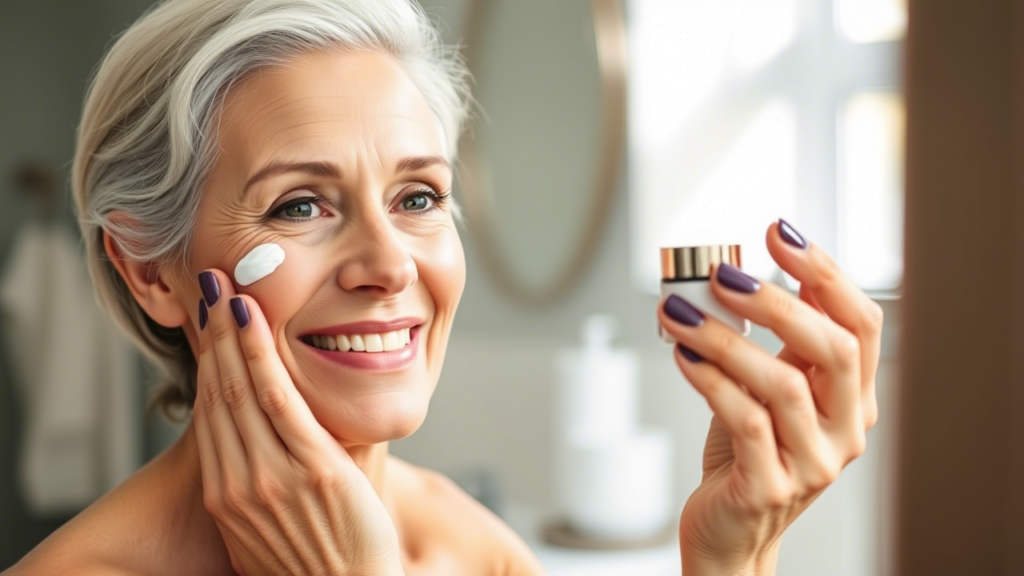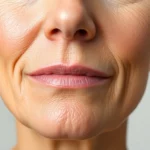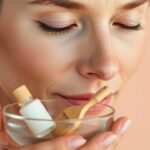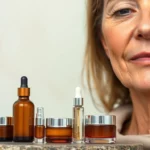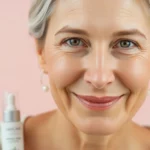As skin matures, it requires more than just basic hydration—it needs ingredients that combat wrinkles, dryness, and loss of elasticity. With countless products claiming to be the best, finding the right moisturizer can be overwhelming. But don’t worry—this guide will help you choose the perfect moisturizer for youthful, glowing skin at any age.
Understanding Aging Skin and Its Needs
As skin ages, it becomes more prone to dryness and other changes. Let’s explore these changes and how they affect your skincare needs.
The Science of Aging Skin
Collagen and elastin, the proteins that keep skin firm and elastic, break down over time. Sebum production decreases, leading to dryness, and skin cell turnover slows. These changes are influenced by genetics and external factors like sun exposure and pollution.
Common Skin Issues with Aging
Wrinkles, fine lines, age spots, and dryness are common concerns for aging skin. You may also notice thinner or less firm skin. The right moisturizer can address these issues effectively.
Hydration vs. Moisture
Hydration refers to the water content in your skin, while moisture is about trapping that water. Humectants like hyaluronic acid draw water into the skin, emollients like shea butter smooth the skin, and occlusives like petroleum jelly lock in moisture. The best moisturizers combine all three.
Key Ingredients to Look For
Certain ingredients are particularly beneficial for aging skin. Here’s what to look for in a moisturizer:
Hydration Heroes: Hyaluronic Acid and Glycerin
Hyaluronic acid is a hydration powerhouse, holding vast amounts of water to keep skin plump. Glycerin is another excellent humectant that draws moisture from the air into your skin, keeping it soft and supple.
Anti-Wrinkle Powerhouses: Retinoids and Peptides
Retinoids, like retinol, boost collagen production and cell turnover, reducing wrinkles and smoothing skin texture. Peptides also stimulate collagen production, targeting specific skin concerns.
Antioxidant Allies: Vitamin C, Vitamin E, and Green Tea Extract
Antioxidants protect skin from free radical damage. Vitamin C brightens and promotes collagen, Vitamin E hydrates and nourishes, and green tea extract soothes inflammation.
Barrier Repair: Ceramides and Niacinamide
Ceramides strengthen the skin’s barrier, locking in moisture and keeping out irritants. Niacinamide (Vitamin B3) reduces inflammation, brightens skin, and improves texture.
Choosing a Moisturizer Based on Your Skin Type
Selecting the right moisturizer depends on your skin type. Here’s how to choose:
Dry Skin: Rich and Creamy Formulas
Opt for thick, creamy moisturizers with emollients and occlusives like shea butter, ceramides, and oils to seal in moisture and combat dryness.
Oily Skin: Lightweight and Non-Comedogenic
Choose lightweight, non-comedogenic moisturizers that won’t clog pores. Gel-based or lotion formulas with hyaluronic acid and niacinamide are ideal.
Sensitive Skin: Gentle and Fragrance-Free
Use gentle, fragrance-free moisturizers with soothing ingredients like aloe vera and chamomile. Avoid harsh chemicals and dyes.
Combination Skin: Balanced Formulas
For combination skin, use lightweight moisturizers that address both dry and oily areas. Experiment with different products for different zones.
How to Apply Moisturizer for Maximum Benefits
Proper application ensures your moisturizer works effectively. Here’s how to get the most out of it:
Application Techniques
Apply moisturizer with light, upward strokes on damp skin after cleansing. This helps the product penetrate better.
Layering Skincare Products
Use moisturizer after serums and before sunscreen. This seals in the benefits of your serums and provides a protective barrier.
The Importance of Sunscreen
Sunscreen is essential to prevent further aging and sun damage. Use an SPF moisturizer daily for added protection.
Conclusion
Choosing the right moisturizer is key to maintaining youthful, glowing skin as you age. Look for key ingredients, consider your skin type, and apply the product correctly. With the right moisturizer, you can address your skin’s unique needs and achieve your skincare goals.
